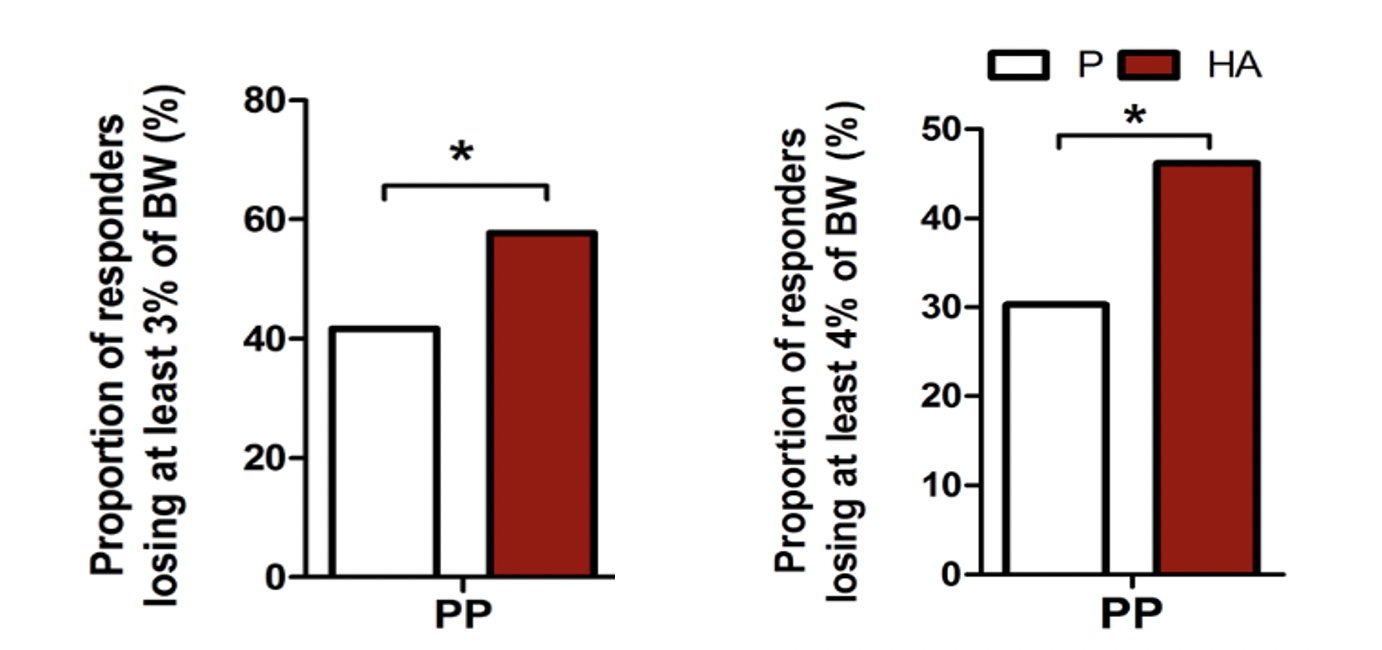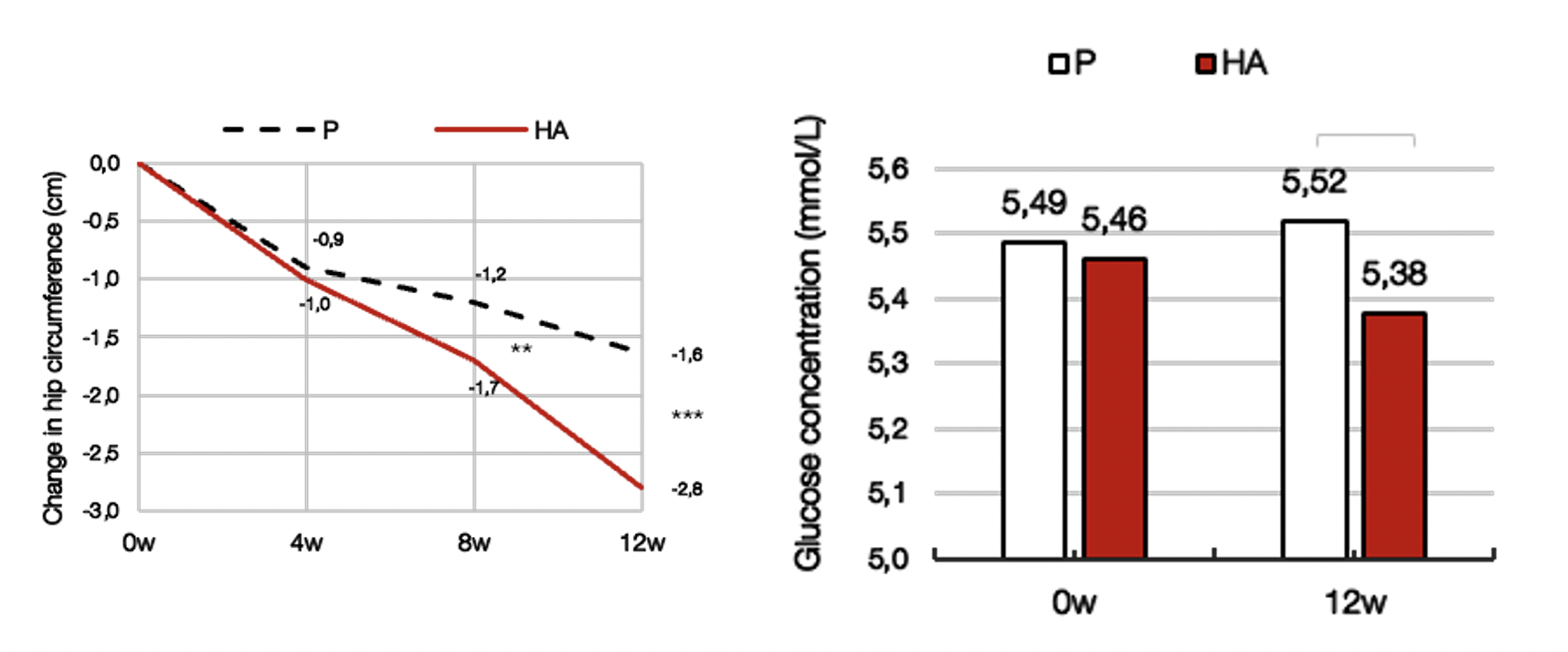
A collaboration between TargEDys, the French Institute of Research Inserm, Rouen Normandy University and Hospital, and Analyze-Realize in Berlin led to the publication of the first ever human trial on the efficacy of the novel probiotic Hafnia alvei HA4597® in the management of overweight (1).
A growing body of evidence points to the existence of a microbial component in the epidemic of obesity and overweight since the first evidence of a difference between the microbiota of obese and lean people, and its transmissibility back in 2006 (2).
The investigation behind the mechanism of action explaining the results of this new study also dates back many years, since the research on anti-alpha-MSH antibodies and the discovery of Caseinolytic peptidase B (ClpB). ClpB, thanks to its conformation and analogous sequence to the satiety hormone alpha-MSH, is a functional mimetic of this satiety hormone (3, 4) and is negatively associated with body weight and Body Mass Index (5, 6). Two recent publications showed Hafnia alvei HA4597®, a bacterium from French cheese camembert producing ClpB, was able to reduce food intake and weight gain in different murine models of obesity (5, 7).
The present study, the first with Hafnia alvei in humans, is conducted according to pharmaceutical standards in 236 overweight men and women following a 20% caloric restriction, who were supplemented for 12 weeks with 2 capsules per day of either HA4597® (100 billion cells) or a placebo.
Results:
The primary endpoint, percentage of subjects losing at least 3% body weight after 12 weeks, was significantly higher in HA4597® group than placebo (57.7% vs. 41.7%, p=0.028, thus 38% better response in the probiotic group, per protocol results). 51% more subjects also met the 4% body weight loss threshold in the probiotic group (46.2 vs 30.6%, p=0,.024). The participants in the probiotic group saw a significant increase in the feeling of fullness (p=0.009 vs both baseline and placebo), saw a further 1.2 cm reduction in hip circumference, as well as a significant decrease in blood glucose (p=0.027) and cholesterol (unpublished).

The participants also reported increased feeling of fullness when supplemented with HA4597®, reflecting the mechanism of action through the induction of satiety pathways.


The researchers conclude that
“supplementation with HA4597® represents an innovative and well-tolerated strategy to enhance the efficacy of dietary advice for the control of excess body weight; the “precision probiotic” HA4597® (8) paves the way to the precision medicine and nutrition by identifying responders thanks to a gut microbial-based personalized approach.”
Grégory Lambert, CEO of TargEDys, declares:
“This will be a game-changer in the sector of weight management, with finally a solution that meets consumers expectations in terms of safety and naturality, while also bringing a real, demonstrated efficacy based on molecular mimicry and the biochemical regulation of appetite.”
References:
- Déchelotte, P. et al. The Probiotic Strain alveiHA4597® Improves Weight Loss in Overweight Subjects under Moderate Hypocaloric Diet: A Proof-of-Concept, Multicenter Randomized, Double-Blind Placebo-Controlled Study. Nutrients 2021, 13, 1902. https://doi.org/10.3390/nu13061902
- Turnbaugh, P., Ley, R., Mahowald, M. et al.An obesity-associated gut microbiome with increased capacity for energy harvest. Nature 444, 1027–1031 (2006). https://doi.org/10.1038/nature05414
- Fetissov SO et al. Bacterial Protein Mimetic of Peptide Hormone as a New Class of Protein- based Drugs. Curr Med Chem. 2019;26(3):546-553. doi: 10.2174/0929867324666171005110620.
- Tennoune N et al. Bacterial ClpB heat-shock protein, an antigen-mimetic of the anorexigenic peptide α-MSH, at the origin of eating disorders. Transl Psychiatry. 2014 Oct 7;4(10):e458. doi: 10.1038/tp.2014.98.
- Legrand R, et al. Commensal Hafnia alvei strain reduces food intake and fat mass in obese mice-a new potential probiotic for appetite and body weight management. Int J Obes (Lond). 2020 May;44(5):1041-1051. doi: 10.1038/s41366-019-0515-9.
- Arnoriaga-Rodríguez M, et al. Gut bacterial ClpB-like gene function is associated with decreased body weight and a characteristic microbiota profile. 2020 Apr 30;8(1):59. doi: 10.1186/s40168-020-00837-6.
- Lucas N. et al. Hafnia alveiHA4597 Strain Reduces Food Intake and Body Weight Gain and Improves Body Composition, Glucose, and Lipid Metabolism in a Mouse Model of Hyperphagic Obesity. Microorganisms. 2019 Dec 23;8(1):35. doi: 10.3390/microorganisms8010035.
- Veiga, Pet al. Moving from Probiotics to Precision Probiotics. Microbiol.2020, 5, 878–880.

Nina Vinot
Before entering industry, Nina was involved in human nutrition research at Penn State University, USA, the French National Center for Scientific Research (CNRS) and the National Institute for Agronomic Research (now INRAe). She has an engineer degree from AgroParisTech, Paris Institute of Technology for Life, Food and Environmental Sciences. After over 6 years developing science-backed probiotic supplements sales across Europe for Probiotical, she is today international sales director for the French biotech TargEDys, the ambassador of precision probiotics.

